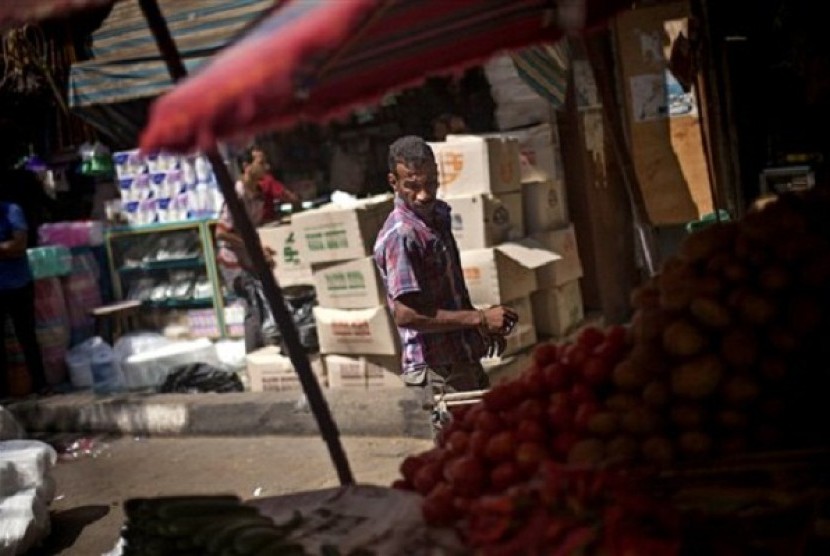REPUBLIKA.CO.ID, CAIRO - Two groups of Presiden Mohammaed Mursi's supporters offered to call off street protests if the government agrees to ease its pressure on Islamists. The move underscores how a onetime strong Islamist movement is now bowing to an unprecedented crackdown by security authorities.
The proposal comes after the military rounded up hundreds of Muslim Brotherhood leaders and other Islamists in the wake of the country's worst bout of violence, which followed the Aug. 14 clearing of two sprawling sit-in camps housing protesters calling for the reinstatement of ousted Mursi, Egypt's first freely elected leader.
Critics say the truce proposal reflects cracks within the opposition alliance led by the Brotherhood, with much of its leadership either imprisoned or on the run. "They want to lift pressure on their groups and jump off the Muslim Brotherhood boat that is sinking right now," said veteran journalist and analyst Makram Mohammed Ahmed. "Everyone is searching for a way out but this too late."
Mursi supporters previously have insisted on the reversal of three moves by the military — Mursi's return to power, the lifting of the suspension of Islamist-drafted constitution and the restoration of the only legislative council under Mursi, as three preconditions to talks.
However Islamic Jihad leader Mohammed Abu Samra told The Associated Press that the proposed truce has no "red lines."
"We are paving the way for talks," Abu Samra said by telephone. "We can't hold talks while we are at the points of swords in the midst of killings and crackdowns." He said the groups were "extending their hands" to avoid a bloodier confrontation with the military, which he accuses of "defaming" the Brotherhood in the media and mosques.
Asked about Mursi's return to power, he said, "blood is more treasured than seats of power ... we are no long upholding return of the constitutional legitimacy." Top Brotherhood negotiator Amr Darrag also said his group is open to talks but needs "confidence-building measures," such as an investigation into the killings of hundreds of Morsi supporters over the past month. However, he added, "the other side didn't show a single gesture or any sign that it is ready for dialogue. It only talks about it."
The interim president's office could not immediately be reached for comment. But on Saturday, Egypt's Interim Prime Minister Hazem el-Beblawi told reporters that security measures will not be enough on their own and that Egypt "must go down the political path" to work out a democratic transition through reconciliation. He ruled out talks with anyone who had committed acts of violence, however.


